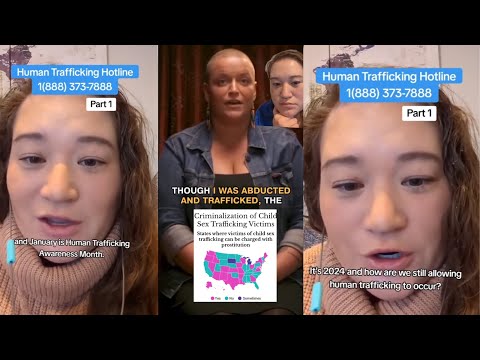The Vital Role of Nurses in Combating Human Trafficking

January is Human Trafficking Awareness Month, in this episode of the Nurse Converse Podcast, our host Leah Helmbrecht, BSN, RN, who works as a forensic nurse examiner and sexual assault nurse examiner, provides valuable insights into the nature of human sex trafficking, its impact on victims and how nurses are often the first line of defense in identifying and helping victims.
>>Listen to this episode on the Nurse Converse podcast
Leah discusses common misconceptions and highlights the prevalence of this crime within society. Human trafficking is a pervasive issue that continues to plague societies around the world. It is a form of modern-day slavery that involves the exploitation of individuals, often women and children, for various purposes such as forced labor, sexual exploitation, and organ trafficking. Despite efforts to combat this heinous crime, human trafficking remains a lucrative and clandestine industry, generating billions of dollars in profits each year.
- Leah emphasizes that human sex trafficking is not limited to other countries or stranger abductions, as often portrayed in the media. Rather, it occurs within communities, perpetrated by individuals known to the victims, such as family members, friends, or romantic partners. This highlights the complexity and insidious nature of human trafficking, as it often involves manipulation, coercion, and psychological abuse.
- Society is complicit in perpetuating human trafficking. Leah indicates there’s a demand for commercial sex acts and a link between pornography and human trafficking. The majority of traffickers and buyers are men, and the demand for sexual exploitation fuels the supply of victims. This affirms the need for society to address the root causes of human trafficking, including gender inequality, harmful societal norms, and the objectification of women.
- The role of healthcare professionals in identifying and assisting victims of human trafficking is essential. Leah provides valuable insights into the signs and indicators that healthcare workers should be aware of when interacting with potential victims. Creating a safe and supportive environment for victims to disclose their situation and seek help is a main priority.
- Leah stresses that the need for hospital protocols and training programs to equip healthcare workers with the knowledge and skills to effectively respond to cases of human trafficking is vital. Collaboration between healthcare professionals, law enforcement agencies, and advocacy groups is necessary in combating human trafficking.
It’s imperative for society to address the widespread issue that is human trafficking. By raising awareness, challenging misconceptions, and promoting collaboration, we can work towards eradicating human trafficking and ensuring the safety and well-being of all individuals.
If you or someone you know is being human trafficked or in a human trafficking situation, please reach out to the National Human Trafficking Hotline at 1-888-373-7888. Or you can text INFO in all caps to 2-3-3-7-3-3.
>>Listen to this episode on the Nurse Converse podcast

Connect With Leah on social media:
Instagram: offtheclocknurse
TikTok: offtheclocknurse






